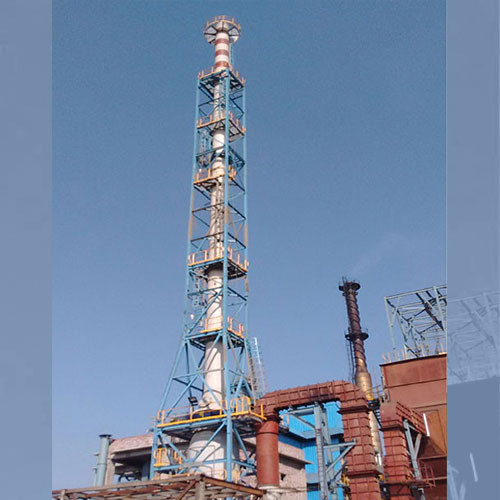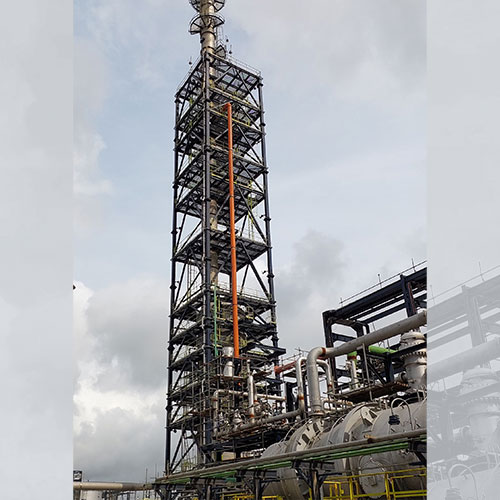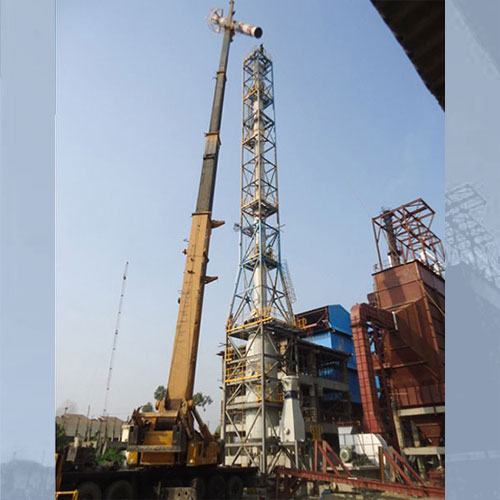Gas Cleaning Plant (GCP) Solutions for Industrial Emission Control



At Enviropol , we specialize in providing high-performance Gas Cleaning Plants (GCP) to help industries control their emissions and meet stringent environmental standards as per CPCB norms. Our GCP solutions are designed to remove harmful Particulates, Dust, SOx, NOx, Tar and other pollutants from industrial gases, ensuring cleaner air and better regulatory compliance.
With over 20+ years of experience and 400+ installations across 30+ countries, we deliver industry-leading gas cleaning systems that reduce emissions, improve plant operational efficiency, and help industries maintain a greener footprint meeting the government Net Zero target. Our GCP solutions are widely used in industries such as cement, steel, power generation, sugar, Waste to Energy, Oil & Gas and chemical manufacturing.
What is a Gas Cleaning Plant (GCP)?
A Gas Cleaning Plant (GCP) is a specialized industrial system designed to remove harmful pollutants from process gases. GCPs play a vital role in ensuring that industries reduce their environmental impact by capturing pollutants like dust, particulate matter, sulfur oxides (SOx), and nitrogen oxides (NOx), which are generated during manufacturing processes. GCPs help industries comply with environmental regulations while improving air quality for surrounding communities. GCP also help industries in achieving Net Zero emissions.
How Gas Cleaning Plants Work
Gas cleaning plants use various advanced technologies to treat process gases and remove contaminants before they are released into the atmosphere. Depending on the nature of the emissions, GCPs can employ Filtration, scrubbing, and electrostatic separation to purify industrial gases and reduce harmful emissions.
The goal of these systems is to improve air quality by capturing and neutralizing harmful substances, contributing to cleaner industrial processes and a healthier environment.
Gas Cleaning Plant (GCP) Technologies
At Enviropol, our gas cleaning systems are equipped with a range of cutting-edge technologies to ensure maximum pollutant removal and regulatory compliance.
1. Cyclone Separators
Cyclone separators are used to capture and remove large particulates from industrial gases. These separators work by spinning the gas stream in a vortex, causing heavier particles to drop out and be collected for disposal or reuse.
2. Dry & Wet Electrostatic Precipitators
Electrostatic Precipitators use an electrical charge to remove fine particulate matter from exhaust gases. These systems are highly efficient in industries like steel and cement, where dust and particulates are common byproducts.
3. Wet Scrubbers / Chemical Scrubber
Scrubbers are used to neutralize and capture SOx, NOx, and other gaseous pollutants. Wet scrubbers use a liquid medium to absorb pollutants.
4. Bag Filters
Baghouse filters are used to trap dust and fine particulates through fabric filters, making them ideal for industries with high dust generation, such as cement, Mining and power generation.
5. Flue Gas Treatment Systems
Flue gas treatment targets gases emitted during combustion processes. Using a combination of scrubbers and filters, flue gas treatment systems effectively reduce all pollutants and other harmful emissions.
Benefits of Gas Cleaning Plants
Installing a Gas Cleaning Plant offers numerous benefits to industries that need to manage air emissions:
1. Environmental Compliance
GCPs ensure that your industrial emissions meet local and international environmental standards, reducing the risk of fines and legal penalties.
2. Cleaner Air
By removing harmful gases and particulates, gas cleaning plants improve air quality and reduce environmental pollution, contributing to a healthier ecosystem.
3. Operational Efficiency
Optimized gas cleaning processes improve the efficiency of your industrial operations by reducing waste and minimizing downtime caused by environmental compliance issues.
4. Reduced Carbon Footprint
Gas cleaning plants help industries reduce their carbon footprint and meet sustainability goals, contributing to a more eco-friendly future.
5. Cost Savings
By avoiding environmental penalties and improving efficiency, industries can achieve long-term cost savings with the implementation of gas cleaning systems.
Industries That Benefit from Gas Cleaning Plants
Gas cleaning plants are essential for industries that produce significant emissions during their processes, including:
- Cement Industry : Reducing dust and particulates during clinker production and raw material processing.
- Steel Industry : Minimizing Tar, Blast Furnace Gases, H2S Gas and dust emissions from steel manufacturing and smelting processes.
- Power Generation : Controlling flue gas emissions from coal, oil, and biomass-fired power plants to meet strict air quality standards.
- Sugar Industry : Reducing emissions from bagasse-fired boilers and other combustion processes.
- Chemical Manufacturing : Cleaning process gases, H2SO4, HCL emitted during chemical reactions to ensure clean air output.
- Waste to Energy Plants : Cleaning the gas generated during firing of MSW or RDF waste in Boilers.
Why Choose Enviropol for Gas Cleaning Plants?
1. Proven Expertise
With over two decades of experience, Enviropol Engineers is a trusted provider of customized gas cleaning solutions. Our team has successfully completed over 400 installations globally, ensuring that industries can operate efficiently while reducing their environmental impact.
2. Tailored Solutions
We design custom gas cleaning systems that are tailored to the specific emissions and needs of your industry, ensuring optimal performance and compliance.
3. Global Reach
Our gas cleaning systems are trusted by industries in over 30 countries, delivering consistent, high-performance solutions for diverse industrial operations.
4. Advanced Technology
Our GCP solutions incorporate the latest air pollution control technologies, ensuring that your plant is equipped to handle evolving environmental regulations.
5. Reliable Support
Enviropol Engineers offers ongoing maintenance, troubleshooting, and optimization support to ensure that your gas cleaning systems continue to operate at peak performance.
